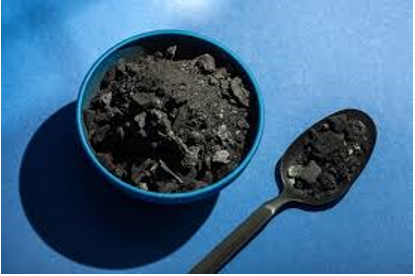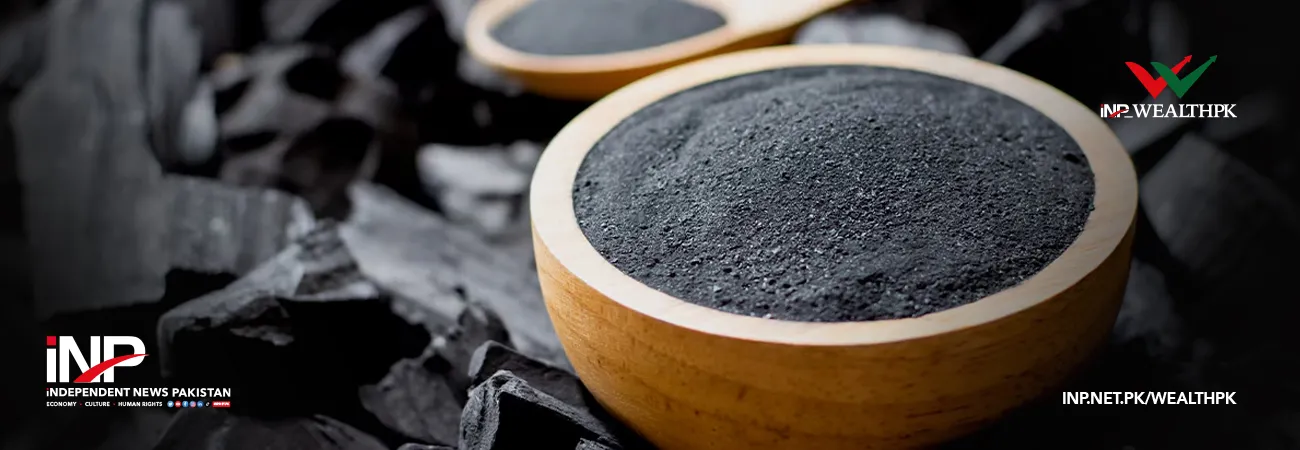INP-WealthPk
Faiza Tehseen
The costs incurred on import of activated (edible) carbon is unsustainable for Pakistan’s economy, so by establishing its production facilities locally, the government can not only save foreign exchange but can also have quality products at quite a low cost.

"Focusing on domestic production will help lower the carbon footprint associated with material transportation, and help Pakistan better manage its waste resources,” says Dr Riffat Tahira, programme leader of the National Medicinal, Aromatic and Herbs Programme of Pakistan Agricultural Research Council (PARC). Talking to WealthPK, she said indigenous production of edible carbon would also generate jobs and ensure an eco-friendly future.
“The excessive quantity of edible carbon can be exported to earn foreign exchange.” Tahira said: “Edible carbon is available in both activated and non-activated forms. Non-activated carbon is less effective for domestic or commercial purposes. “Edible carbon, essentially referred to as activated carbon, meets specific food-grade standards.” She said that non-activated carbon was a highly porous material not intended for ingestion, but was widely used in industry.
She said: “Activated edible carbon is safe for human consumption as it is used for food and medicinal purposes. Its most common type is activated charcoal (activated carbon), a fine, black, odourless and tasteless powder, produced from carbon-rich organic and non-organic materials, including asphalt, metal carbides, and wornout vehicles. Edible carbon is also referred to as activated charcoal.”
She explained: “Edible carbon is produced by heating the biomass or other waste in oxygen-deprived environment, followed by an activation process using steam or carbon dioxide, creating a highly absorbent porous structure. After activation, carbon is washed and filtered to remove impurities or any residual chemicals.” Talking to WealthPK about the importance of locally produced edible carbon and its other forms, Mumtaz Hussain Mian, a chemist and businessman, said: “It is not complicated or too expensive to produce different types of carbon.
Awareness should be created about the local production of edible carbon. Government support is essential in helping small and medium-sized enterprises to establish such plants.” “Activated edible carbon is widely used in food processing industry as a natural black colouring agent, drinks’ detoxifying ingredient, an anti-caking agent for powdered food products, food and edible oil purifier, and shelf-life enhancer of food items. It is used to manufacture personal care products, supplements, pharmaceuticals, especially to treat certain types of poisoning and drug overdose,” he explained.
Mumtaz continued: “It is also used for gas purification and treating drinking ground, and municipal water. In mining operations, it is effectively used to trap the precious metal particles, including gold. To mitigate the greenhouse gas (GHG) impacts, it is used for carbon capture and storage from power plants and landfill gas emissions.” Biochar, another form of edible carbon made from organic waste, is used to improve water quality, soil health and retention.
It reduces GHG emissions from soil by sequestering carbon, and is also used as a mix with other soil and container substrate amendments in agriculture and horticulture. Activated carbon, in both powdered and granular grades, made from bituminous coal, is preferred due to its 70% to 90% porosity. Activated carbon does not last longer in colder climates, and high humidity makes it less effective and clump.
Granular activated carbon, used in air filter and water treatment systems, lasts three to six and six to 12 months, respectively. Policymakers in Pakistan should consider the local production of edible carbon. Global top importers of different carbon forms, including edible ones, are the United States, the European Union, China, Germany, Korea, and the Dominican Republic. Pakistan can also earn profit by trading its carbon-based products to these and other countries.
Credit: INP-WealthPk




